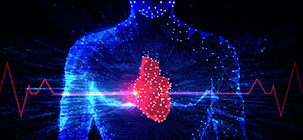EEG (Electroencephalogram)
Jump
to Tests
An EEG is a non-invasive test that records the brain's spontaneous electrical activity used to diagnose or monitor conditions such as epilepsy and sleep disorders. Several electrodes are placed on the scalp to record electrical charges created by brain activity.
An EEG is recommended to detect or monitor conditions as follows:
- Epilepsy and other types of seizures
- Sleep disorders
- Brain tumors
- Head injuries
- Encephalopathy (brain dysfunction that may have a variety of causes)
- Encephalitis (brain inflammation)
- Stroke
- Dementia, as in Alzheimer’s disease
What happens during EEG?
Small metal discs (electrodes) will be placed all over the scalp with the help of a sticky paste. You won’t need to shave/ cut hair. These electrodes are attached to the wires that send electrical signals to the system for recording the brain waves. You won’t feel any discomfort or sensation from the electrodes.
However, it is necessary to stay still during an EEG. As per requirement, you may be asked to perform deep breathing, look at a flashing light, or sleep. Sometimes, EEGs are done when you have been sleep-deprived. It takes around 60 mins or more if sleep recording is going on.
What does the EEG detect?
Through an EEG test, your neurologist will try to look out for abnormalities that may occur during the recording of electrical activity. The test indicates seizure-related brain activity (epileptiform brain activity) even when you are not having a seizure. Asking to perform deep breathing or flashing lights helps in catching epileptiform activity.
Normal EEG results do not always rule out epilepsy as they cannot show what happens to the brain during seizures. Also, it is possible to have abnormal EEG findings and not epilepsy. Some types of epilepsy are more difficult than others to detect using just an EEG on the scalp.
Instructions:
- Hair must be clean and dry with no hair pieces or weaves.
- Applying hair creams, gels, or any other styling products is restricted.
- Avoid caffeine for 8 hours before an EEG test.
- You may be asked to be sleep-deprived, which may give better results for recording irregular brain activity.
- If you are on medications for seizures or any other health condition, please inform the doctor beforehand.




